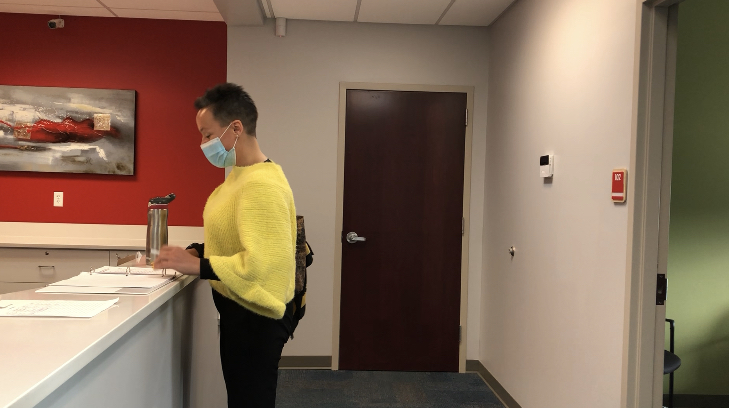COLUMBUS, Ohio — As legislators on both sides of the aisle work to expand expungement laws for all human trafficking victims, some are already getting the opportunity to get their slates wiped clean.
For people like Camie Barnett, it's a huge relief.
These days, yoga has become more of a moving meditation for Barnett. She said she feels great when she does it and knows that once she's finished, she's done the hardest thing all day.
And that includes working through the trauma she's experienced over seven years of her life as a result of being involved in human trafficking.

Barnett was 27 when she first got involved. She said it all started after struggling to make ends meet for herself and her children.
Turning to drugs, she ended up meeting a man who helped her, but the help soon turned into demands for her to steal and engage in prostitution as a way to support their addiction.
She said some of the things didn't align with her morals and values, but she was hopeless and didn't know where else to turn. When she refused to do what he wanted she said she was threatened.
"If I didn't do things that there would be repercussions,” Barnett said.
She said those repercussions amounted to physical abuse. Racking up charges and warrants, Barnett said she was arrested one day during a sting operation. She landed in jail for 28 days. That was just enough time to detach from the man she was involved with at the time. When she returned to her home, everything was gone but a cart full of clothes.
She moved, but a series of relationships put her right back in similar situations. With the help of her mom, she checked into a recovery center.
It was there where she decided she wanted to help people in recovery. After almost a year, she left recovery determined to make something of her life.
She took a job at a place making car parts before moving on. She said she struggled to find a place to live. Her record was still hanging over her head, but she kept plugging away.
In 2017, she got the chance to begin working at the Ohio Addiction Recovery Center helping others in recovery and teaching yoga.

In December of 2020, she finally got her record expunged after going to court twice to prove her case. It's a day she'll never forget. The judge told her it was his honor to expunge her record, she said.
Although Barnett is free, there are many victims, men and women who are not.
“Currently, as the law stands, someone has to be convicted of either soliciting, loitering or prostitution in order to even qualify to expunge their record and this is one of the greatest and most unnecessary barriers contained in this law,” said Emily Dunlap, a senior staff attorney at Advocating Opportunity.
This means survivors without those charges don't qualify for record expungement. This is why legislators are working to expand the rules.


